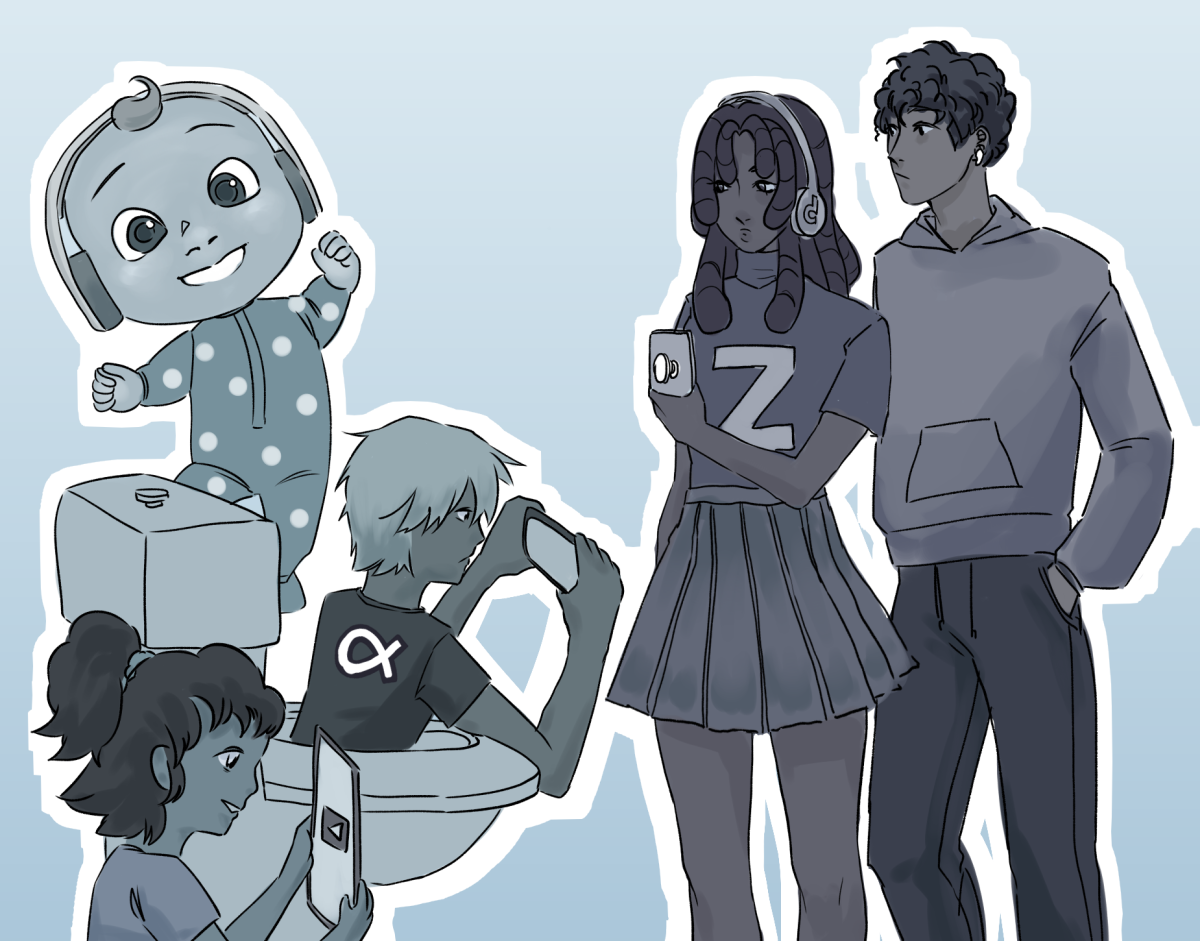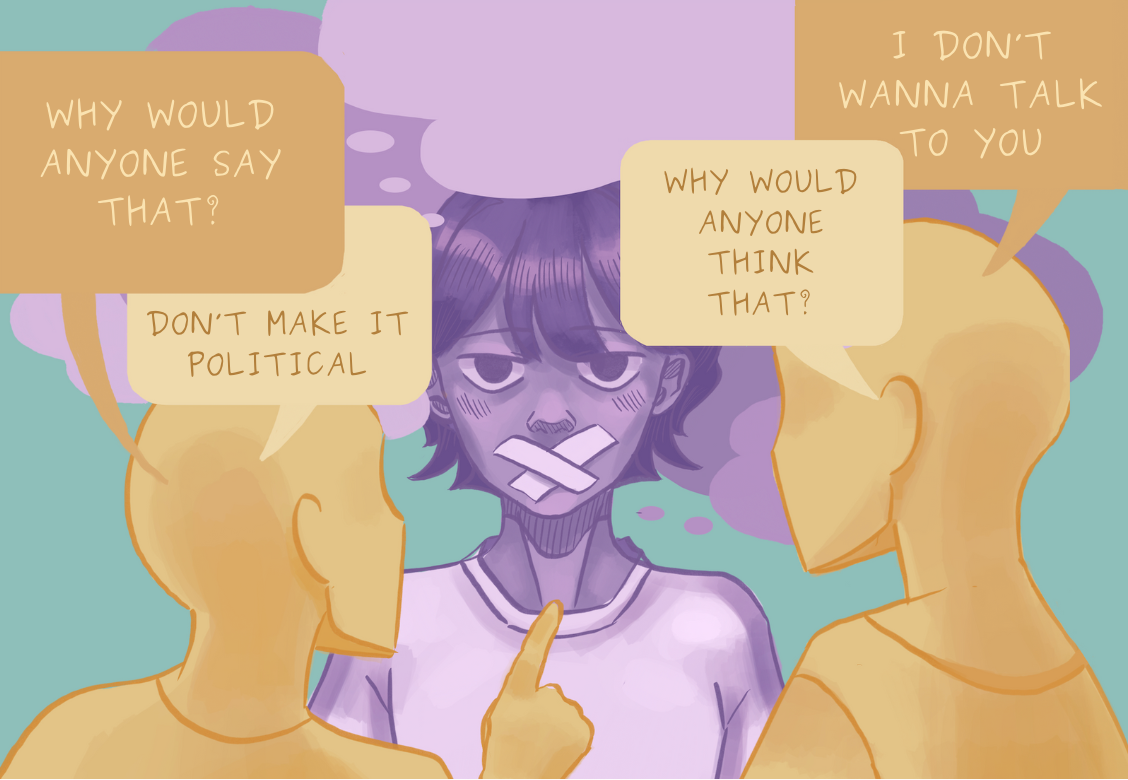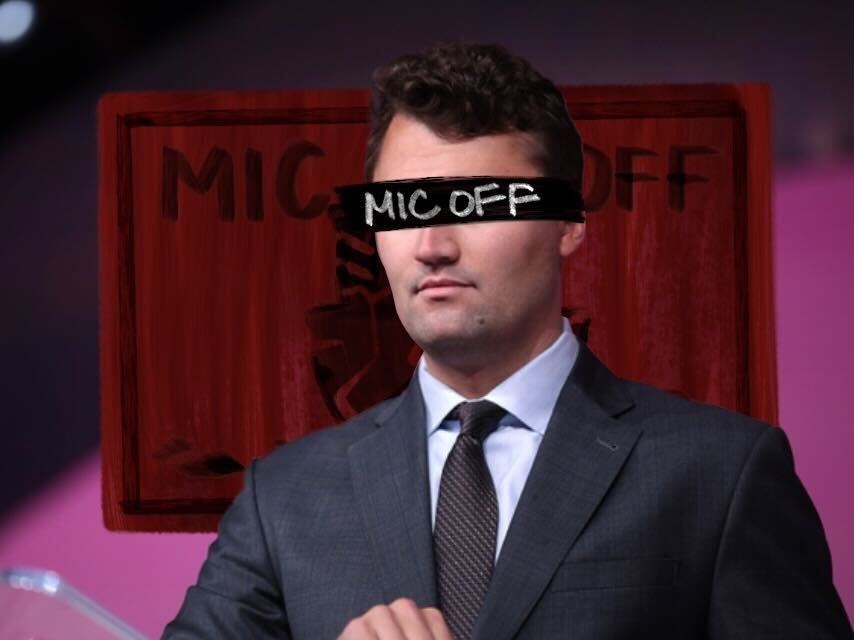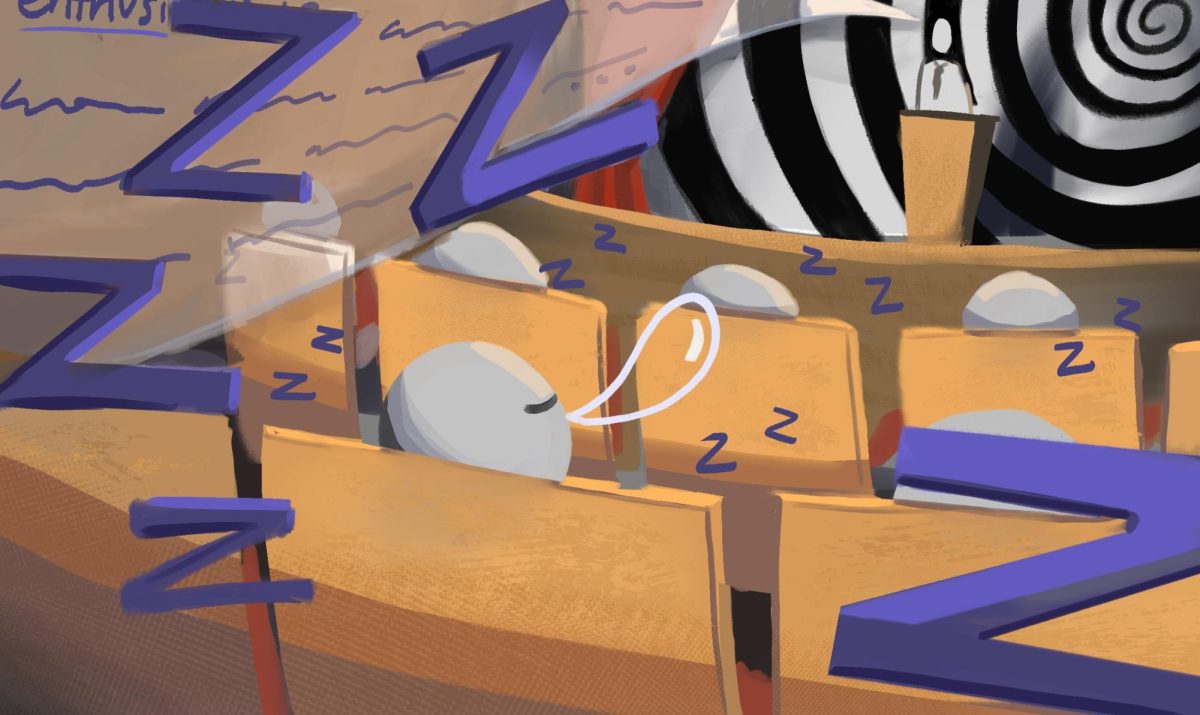Outspoken, rebellious against the norm and open to experimentation, young people stand at the forefront of societal trends. Young generations hold the most relevance within society with their passion, energy and potential, and now, in the age of the internet, the influence of today’s youth on the public is evident.
Raised on the web, Generation Z (born 1997-2012) has directed societal norms for nearly a decade, relentlessly mocking any generation that does not fall into our expectations. Representing around 40% of global consumers in 2020, Gen Z has upheld its position in dictating society’s sense of humor, style and more.
Gen Z’s reach extends to companies that have utilized slang and generational humor as a marketing strategy. Take Duolingo, a language learning app that invented an entire Zoomer persona for its owl mascot to boost its social media interactions. Duolingo gains fame from its witty and relatable TikTok comments and videos. Having enjoyed nearly a decade in society’s spotlight, Generation Z has ruthlessly judged the online presence of our seniors, but our time may be drawing to a close as Gen Alpha grows up.
The brunt of Gen Z’s attention has been directed towards our online predecessors: millennials, people born in the early 80s to mid-90s. These 30-somethings lean into self-awareness, cracking self-deprecating quips and pointing out their own quirkiness. On the other hand, trademarks of Gen Z’s humor include absurdism and what some call “meta-irony,” a joke that is neither sincere nor ironic but somewhere in between. The subtleties and intricacies of the generation’s humor make it difficult for millennials with on-the-nose humor to understand.
As a result of the generations’ differing senses of humor, millennials’ attempts to relate or get along with their edgier juniors have resulted in exclusion and ridicule. Gen Z’s nonstop judgment has caused some millennials to even become ashamed of their own generation, with some millennials born on the cusp adopting the name “Zillennial.”
Over the years, millennials have left their mark on the web, providing many an online relic for Generation Z to laugh at. Gen Z’s obsession with condemning anything remotely “cringe” has resulted in ruthless mockery towards any millennial-based content; we ironically turn a blind eye to the plentiful amounts of questionable behavior from our own generation, from the Renegade and Junko-posing filled horror that was 2020 TikTok to our obsession with turning everything into an aesthetic. So cringecore! Also, just a reminder that the Among Us musical was a thing. These embarrassing bits of our past may come back to bite us as Gen Alpha ages and fills our shoes as the internet’s most influential generation.
In the past few years, millennial teasing has become particularly widespread on TikTok, where videos parodying millennials’ filming and editing styles garner millions of views, such as this caricature skit of millennial videos with eight million views and 1.5 million likes. These quirks, including the “millennial pause,” a phenomenon where millennials purposefully stop for a few seconds before speaking in TikToks, generally arise from millennials’ familiarity with older technology.
Moreover, millennial humor is a reflection of cultural phenomena from the 2000s to early 2010s from the corny jokes on Buzzfeed to over-the-top parody songs prevalent in the early days of the internet. In other words, the so-called “cringiness” of millennials is simply a product of their time. The oddities of millennial humor that Gen Z mocks today were considered humorous back when millennials held the reins of societal relevance.
Beginning in August of this year, people online have been causing a stir over a new contender in what could be a pervasive bullying cycle. Generation Z can only stay relevant for so long, and as time goes on we may become the new millennials, seen as unfunny by our juniors and desperately clinging onto our youth. As Generation Alpha grows older by the day, it is inevitable that they will overtake our position as society’s most influential generation, and given our track record of poking fun at generations past, it would only be fair that we receive the same treatment from our juniors.
Netizens have dubbed the explosively popular web series “Skibidi Toilet” as Gen Alpha’s first meme, referring to the generation born from the early 2010s to 2025. The series consists of one-minute-long animated YouTube videos filled with singing heads in toilets, anthropomorphic cameras and explosions. With users baffled at the series’ popularity, this time it is Gen Z and not millennials who struggle to understand.
Generation Z, which has long prided itself in an absolute understanding of meme culture, is feeling out of touch. Some have retaliated towards Gen Alphas, claiming that they are cringy because millennials raised them. This assertion only seems like a desperate attempt to reclaim the throne of relevancy and memorialize Gen Z as the superior generation. Gen Zers have also criticized “Skibidi Toilet” for being too confusing, but the fact that surreal memes were popular in 2018 shows that Zoomers simply don’t like that the series is not aimed toward us.
Calling children cringy for enjoying “Skibidi Toilet” is painfully ironic. The series heavily resembles the Source Filmmaker (SFM) animated shorts that were widespread on YouTube in the early 2010s, beloved by millions of Gen Z-ers alike. One such video from eight years ago boasting 64 million views consists of Team Fortress 2 (TF2) characters Heavy and Scout being ambushed by an anthropomorphic Thomas the Tank Engine. In hindsight, these videos’ bizarre content is on par with “Skibidi Toilet,” but the latter is seen as distasteful just because it’s not for Gen Z. If our generation’s way of feeling self-assured is to insult everyone else, it’s well deserved if Gen Alpha turns on us in the future.
The generational gap between Gen Z and millennials and now Gen Z and Gen Alpha is merely the product of cultural and societal changes throughout the years, further widened today by the internet’s ever-shortening trends. If Gen Alpha is to continue the cycle of bullying in a few years’ time, it’s best we Generation Z-ers accept that we are indeed cringe. In any case, we had it coming.


















![“[Building nerf blasters] became this outlet of creativity for me that hasn't been matched by anything else. The process [of] making a build complete to your desire is such a painstakingly difficult process, but I've had to learn from [the skills needed from] soldering to proper painting. There's so many different options for everything, if you think about it, it exists. The best part is [that] if it doesn't exist, you can build it yourself," Ishaan Parate said.](https://harkeraquila.com/wp-content/uploads/2022/08/DSC_8149-900x604.jpg)




![“When I came into high school, I was ready to be a follower. But DECA was a game changer for me. It helped me overcome my fear of public speaking, and it's played such a major role in who I've become today. To be able to successfully lead a chapter of 150 students, an officer team and be one of the upperclassmen I once really admired is something I'm [really] proud of,” Anvitha Tummala ('21) said.](https://harkeraquila.com/wp-content/uploads/2021/07/Screen-Shot-2021-07-25-at-9.50.05-AM-900x594.png)







![“I think getting up in the morning and having a sense of purpose [is exciting]. I think without a certain amount of drive, life is kind of obsolete and mundane, and I think having that every single day is what makes each day unique and kind of makes life exciting,” Neymika Jain (12) said.](https://harkeraquila.com/wp-content/uploads/2017/06/Screen-Shot-2017-06-03-at-4.54.16-PM.png)








![“My slogan is ‘slow feet, don’t eat, and I’m hungry.’ You need to run fast to get where you are–you aren't going to get those championships if you aren't fast,” Angel Cervantes (12) said. “I want to do well in school on my tests and in track and win championships for my team. I live by that, [and] I can do that anywhere: in the classroom or on the field.”](https://harkeraquila.com/wp-content/uploads/2018/06/DSC5146-900x601.jpg)
![“[Volleyball has] taught me how to fall correctly, and another thing it taught is that you don’t have to be the best at something to be good at it. If you just hit the ball in a smart way, then it still scores points and you’re good at it. You could be a background player and still make a much bigger impact on the team than you would think,” Anya Gert (’20) said.](https://harkeraquila.com/wp-content/uploads/2020/06/AnnaGert_JinTuan_HoHPhotoEdited-600x900.jpeg)

![“I'm not nearly there yet, but [my confidence has] definitely been getting better since I was pretty shy and timid coming into Harker my freshman year. I know that there's a lot of people that are really confident in what they do, and I really admire them. Everyone's so driven and that has really pushed me to kind of try to find my own place in high school and be more confident,” Alyssa Huang (’20) said.](https://harkeraquila.com/wp-content/uploads/2020/06/AlyssaHuang_EmilyChen_HoHPhoto-900x749.jpeg)











Will Gonsior • Feb 1, 2024 at 6:59 pm
I love the perspective, and I agree that millenials got too much hate, but remain convinced that Gen Alpha are the weirdest in a long, long time. (In fairness, so were we. But they are worse.)